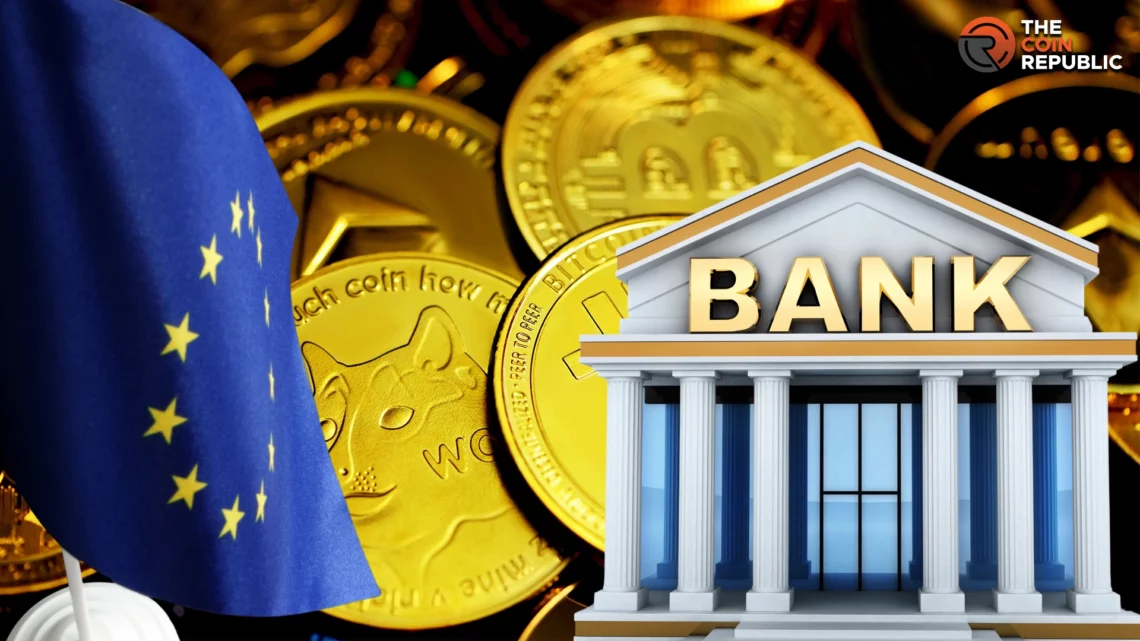The EU regulator’s new rule under the MiCA framework will permit traditional banks to enter the Decentralized Finance (DeFi) space.
As blockchain technology expands its roots in different business sectors, the EU DeFi Regulators open doors for traditional banks to enter the DeFi space. Marina Markezic, the executive director of the European Crypto Initiative, predicted that most traditional banks are already planning to enter crypto land. However, the new rule may set barriers to crypto-native projects.
What EU DeFi Regulators Are Planning?
To expand the roots of cryptocurrencies worldwide, the EU regulators plan to welcome the big traditional banks into the DeFi space. Under the Markets in Crypto-Assets (MiCA) framework, big banks and financial institutions considering issuing altcoins can enter the DeFi landscape.
The rules encourage licensed financial institutions to operate in the crypto space and improve coordination with DeFis. However, the new rules could raise significant challenges for the existing and upcoming native crypto projects.
Marina Markezic, the executive director of the European Crypto Initiative, discussed the plan in an interview with Cointelegraph. Markezic revealed the plan in the European Commission’s upcoming DeFi report, expected on December 30, 2024.
“We think that this regulation will facilitate those big players to come into this crypto space. We know that some banks are already thinking of issuing stablecoins,” Markezic said.
As of now, the final decision on the plan is pending and will be made after the feasibility of the regulations for the DeFi landscape is examined.
The essential purpose of the plan is to bring the traditional players of the financial landscape to the crypto space and strengthen the crypto world. Another vital purpose is investigating how the decentralized system should be regulated, including decentralized exchanges.
Sascha Drobnjak, former head of legal and compliance at the Elusiv protocol, also reacted to the plan.
“I think it is essential for governments, policymakers, and the industry first to align and agree on what constitutes DeFi,” said Drobnjak.
According to Drobnjak, legal experts are focusing on clear standards rather than lying on the strict rules for the sector. Transforming measures into enforceable regulations may raise additional challenges. Specific standards and principles will make it easier for individuals to enter crypto and contribute to future technological innovations.
DeFi Sector’s Current Performance
DeFi is an emerging financial technology with the potential to alter the current centralized banking system. The technology is based on securing distributed ledgers similar to those used for digital assets.
The essential purpose of DeFi is to eliminate the bank fees that major financial institutions charge for offering transactions and related services. It promotes the financial services on the public blockchain to improve security and transparency.
MakerDAO, Aave, Compound, and Uniswap are the leaders contributing to the DeFi market growth. According to Statista, the DeFi market generated annual revenue of $17,740.0 Million in 2023, almost three times the revenue generated in 2022, which is $5,430.0 Million.
Also, the sector is predicted to hit over $31,540.0 Million by 2025 and around $37,040.0 Million by the end of 2028.

Amanda Shinoy is one of the few women in the space invested knee-deep in crypto. An advocate for increasing the presence of women in crypto, she is known for her accurate technical analysis and price prediction of cryptocurrencies. Readers are often waiting for her opinion about the next rally. She is a finance expert with an MBA in finance. Quitting a corporate job at a leading financial institution, she now engages herself full-time into financial education for the general public.


 Home
Home News
News







